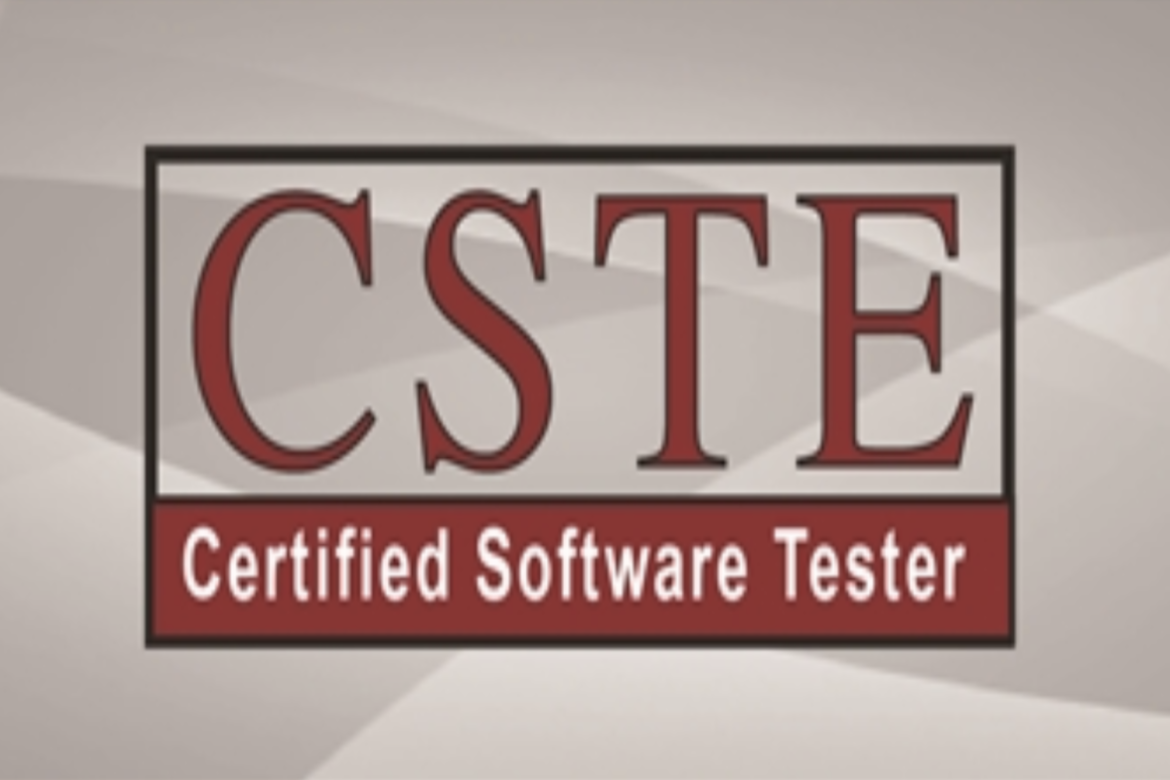Certified Software Tester
Certified Software Tester

The Certified Software Tester (CSTE) certification is intended to establish standards for initial qualification and provide direction for the testing function through an aggressive educational program. Acquiring the designation ofCertified Software Tester (CSTE) indicates a professional level of competence in the principles and practices of quality control in the IT profession. CSTE’sbecome members of a recognized professional group and receive recognition of their competence by business and professional associates, potentially more rapid career advancement, and greater acceptance in the role as advisor to management.
Skill Categories: (CSTE)
- Software Testing Principles and Concepts
- Building the Software Testing Ecosystem
- Managing the Test Project
- Risk in the Software Development Life Cycle
- Test Planning
- Walkthroughs, Checkpoint Reviews and Inspections
- Designing Test Cases
- Executing the Tests
- Measurement, Test Status, Analysis and Reporting
- Testing Specialized Technologies
Knowledge Category 1 ~ Software Testing Principles and Concepts
This skill category focuses on the ‘basics’ of software testing as represented by the vocabulary of testing, testing approaches, methods and techniques as well as the materials used by testers in performing their test activities.
Knowledge Category 2 ~ Building the Software Testing Ecosystem
The test ecosystem is comprised of all the conditions, circumstances, and influences surrounding and affecting the testing of software.
Knowledge Category 3 ~ Managing the Test Project
Software testing is a project with almost all the same attributes as a software development project. This category discusses project planning, project staffing, scheduling and budgeting, communicating, assigning and monitoring work and ensuring that changes to the project plan are incorporated into the test plan.
Knowledge Category 4 ~ Risk in the Software Development Life Cycle
It is often stated that a primary goal of a software tester is to reduce the risk associated with the deployment of a software application system. The very process of test planning is based on an understanding of the types and magnitudes of risk throughout the software application lifecycle. This skill category explains the concept of risk which includes project, process, and product risk. Understanding risk is required in order to evaluate whether the controls are in place and working in the development processes and within the application under test.
Knowledge Category 5 ~ Executing the Test Plan
This skill category explores the skills testers need to plan tests, including the selection of techniques and methods to be used to validate the product against its approved requirements and design. Testers must understand the development methods and environment to effectively plan for testing.
Knowledge Category 6 ~ Walkthroughs, Checkpoint Reviews and Inspections
The importance of integrated quality control throughout the development life cycle cannot be understated. Often testing is only described in terms of dynamic test case execution. In this section of the STBOK, an in-depth discussion about the static testing techniques of walkthroughs, checkpoint reviews and inspections is given.
Knowledge Category 7 ~ Designing Test Cases
This section of the STBOK defines the procedures to identify individual test conditions, decompose the test conditions into individual test cases and create test scripts. The skill category covers identifying test conditions from specifications documents, test transaction types, Use Cases, and Agile User Stories. Further detailed are the techniques to develop test cases from the test conditions using such white box techniques as branch condition and data flow. Black box test cases designed based on techniques such as equivalence partitioning and all-pairs testing are explained in detail.
Knowledge Category 8 ~ Executing the Tests
Testing should commence when the project commences and conclude when the software is no longer in operation. This category focuses on the many skills needed to execute the tests from Acceptance Testing across the SDLC, Unit, Integration and System testing as well as User Acceptance Testing (UAT) and testing Commercial Off-The-Shelf (COTS) software.
Knowledge Category 9 ~ Measurement Test Status, Analysis and Reporting
In this category the tester’s ability to develop testing status reports is discussed. These reports should show the status of the testing based on the test plan. Reporting should document what tests have been performed and the status of those tests. The test reporting process is a process to collect data, analyze the data, supplement the data with metrics, graphs and charts and other pictorial representations which help the developers and users interpret that data. The lessons learned from the test effort should be used to improve the next iteration of the test process.
Knowledge Category 10 ~ Testing Specialized Technologies
Testers require skills in their organization’s current technology, as well as a general understanding of the new information technology that might be acquired by their organization. Testing new technology creates some unique challenges which would not be an issue once the new technology is fully assimiliated. There are many specialized technologies, new or otherwise, which require specific skills to test. This skill category addresses specilized technologies of web application testing, mobile application testing, Cloud base applications, testing within an Agile framework, DevOps application testing, and the Internet of Things.
Certification Exam: Certified Software Tester
| Exam Type | Certification |
|---|---|
| Exam Code | CSTE |
| Duration | 1 hour, 15 minutes |
| Number Of Question | 100 |
| Success Score | 70% |
| Price | 150$ |
Evaluation Exam: Certified Software Tester
| Exam Type | Evaluation |
|---|---|
| Exam Code | CSTE-eval |
| Duration | 45 minutes |
| Number Of Question | 50 |
| Success Score | 70% |
| Price | 40$ |
